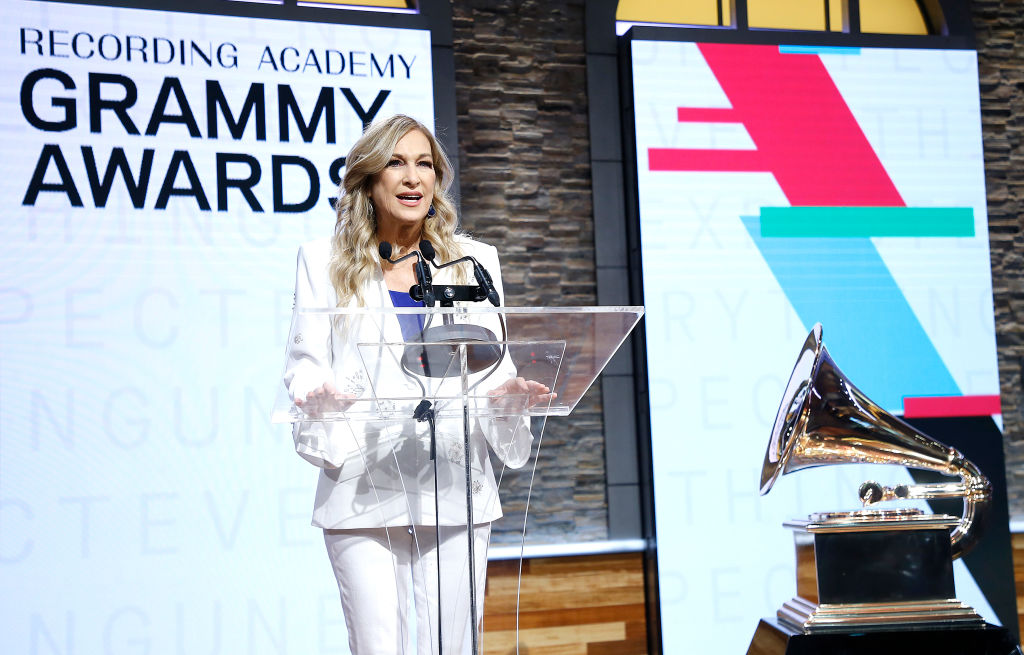Since 2018, when then-CEO Neil Portnow caught heat for his comment that female artists needed to “step up” in order to be considered for a Grammy nomination, the Recording Academy has been under scrutiny over its treatment of women. Especially in the wake of their Deborah Dugan scandal in 2020 — in which Dugan, the organization’s first female CEO, was put on leave and then subsequently claimed she was pushed out after she accused Joel Katz, the Academy’s general legal counsel, of sexual harassment — they’ve gone out of their way to counter the narrative that the Grammys are misogynistic by nominating more women, booking more female artists to perform during the ceremony and creating a special task force for “diversity and inclusion.”
And yet, the 2022 nominations — announced on Tuesday afternoon — won’t do much to convince people that this is an organization that cares about women. Among this year’s nominees are two men who have been accused of sex crimes by multiple women: Louis C.K., who in 2017 admitted to masturbating in front of several women without their consent, is nominated for Best Comedy Album, and Marilyn Manson, who is currently the subject of four separate lawsuits by women who accuse him of rape, sexual assault, sex trafficking, physical and emotional abuse and unlawful imprisonment, was nominated in the Album of the Year and Best Rap Song categories for his contributions to Kanye West’s Donda and “Jail.” Manson is also currently under investigation by the Los Angeles County Sheriff’s Department over allegations of domestic violence. Back in September, he pleaded not guilty in New Hampshire on two counts of Class A misdemeanor simple assault.
On Wednesday, the Recording Academy’s current president and CEO Harvey Mason Jr. responded to the controversy over the Louis C.K. and Manson nominations by claiming it’s not the Academy’s responsibility to police who gets nominated for a Grammy. “We won’t restrict the people who can submit their material for consideration,” Mason told TheWrap. “We won’t look back at people’s history, we won’t look at their criminal record, we won’t look at anything other than the legality within our rules of, is this recording for this work eligible based on date and other criteria. If it is, they can submit for consideration.”
Instead, Mason Jr. says the organization will “take a look” at who it allows to attend or perform at the actual ceremony. “What we will control is our stages, our shows, our events, our red carpets,” he explained. “We’ll take a look at anyone who is asking to be a part of that, asking to be in attendance, and we’ll make our decisions at that point. But we’re not going to be in the business of restricting people from submitting their work for our voters to decide on.”
Of course, even that represents a change from the Grammys’ not-so-distant past. In 2012, just three years after he was charged with felony assault for beating Rihanna on the way to their event, the Grammys welcomed back Chris Brown, inviting him to perform at the ceremony and awarding him Best R&B Album. (That’s as outrageous as the venues where Louis C.K. forced women to watch him masturbate inviting him back to perform standup — something that, sadly, likely has already happened.)
Mason Jr.’s right that it’s not the Grammys’ job to block everyone who’s ever been accused of terrible behavior from being nominated. But when someone’s actually been charged with a crime — like Brown and Manson — or worse, admitted to sexual misconduct like Louis C.K., perhaps it’s time for them to step in. Nominating someone like Manson or C.K. puts them on a pedestal and sends the message to women (in the industry and outside of it) that their pain doesn’t matter and that the men who assault or harass them can do so and still receive accolades.
If their behavior is so heinous that the Academy, as Mason Jr. implied, is considering blocking them from attending the ceremony or walking its red carpet, why give them the satisfaction of receiving a nomination at all? If someone’s so bad that you don’t want them photographed at your event, why bother nominating them in the first place? The Recording Academy still has a long way to go to prove that Dugan’s claims about corruption and a “rigged” nomination process are false, but they might as well stop trying to convince us that they care about women. After Tuesday’s nominations, it’s painfully obvious they don’t.
This article appeared in an InsideHook newsletter. Sign up for free to get more on travel, wellness, style, drinking, and culture.
























